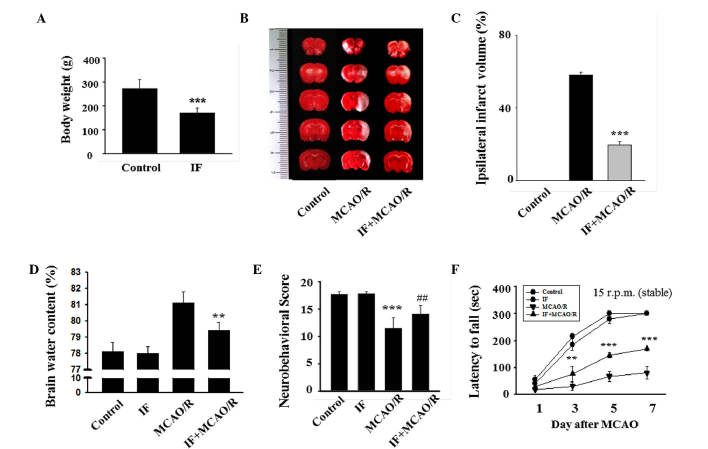Figure 1.
IF induces body weight loss, decreases infarct volume, reduces brain edema and improves neurobehavioral deficits after MCAO/R. (A) Body weight reduction induced by the IF regimen (***P<0.001). (B) Representative images of tetrazolium chloride-stained brain sections 24 h after reperfusion. (C) Quantitative evaluation of ipsilateral infarct volumes in different groups (n=5/group; ***P<0.001 vs. MCAO/R). (D) Percentage of brain water content in different groups (n=5/group; **P<0.01 vs. MCAO/R). Effect of IF on (E) MCAO/R-induced neurological deficits, scaled by Garcia's method (n=5/group, ***P<0.001 vs. control; ##P<0.01 vs. MCAO/R) and (F) on MCAO/R-induced motor deficits, which were estimated by the average latency to fall from a rotarod drum (n=5/group, **P<0.01 and ***P<0.001 vs. MCAO/R). Data are presented as mean ± standard error of the mean. IF, intermittent fasting; MCAO/R, middle cerebral artery occlusion and reperfusion.

